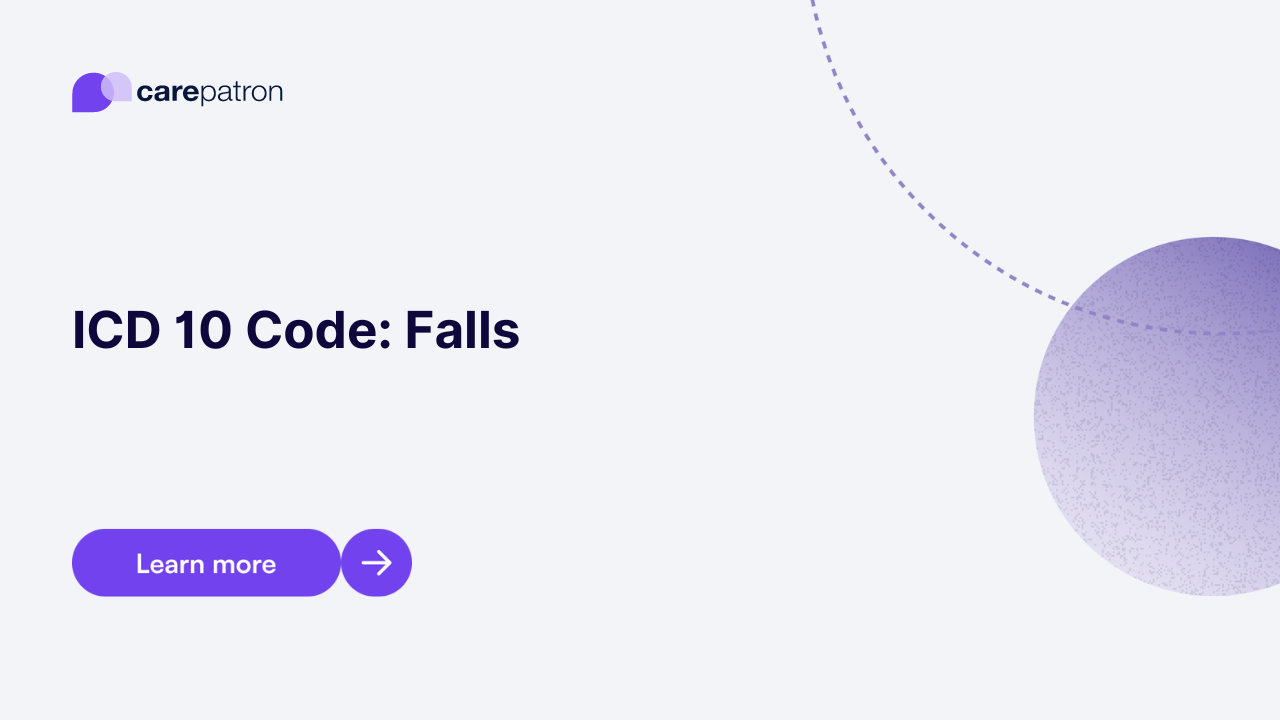Falls ICD-10-CM Codes
Dive into the detailed guide on Falls ICD codes for 2023. Grasp the codes, their billability, and their clinical significance.

What ICD Codes Are Used for Falls?
When documenting incidents related to falls, it's essential to be acquainted with the specific fall ICD codes for precise clinical documentation and billing. Falls can occur for various reasons and can lead to multiple injuries. Here are some commonly used ICD codes related to falls:
- W01.0XXA - Fall on same level from slipping, tripping, and stumbling with subsequent striking against a wall, initial encounter: This code is used for falls resulting from slipping or tripping where the individual strikes a wall.
- W05.XXXA - Fall from non-moving wheelchair, scooter, or motorized mobility scooter, initial encounter: Represents falls from stationary mobility devices.
- W10.XXXA - Fall on and from stairs and steps, initial encounter: This code is used for falls on stairs or steps.
- W18.30XA - Other fall on same level, initial encounter: A more general code for other types of falls on the same level not specified elsewhere.
Using the correct codes ensures that patients receive the appropriate care and that healthcare providers are reimbursed accurately.
Which Falls ICD Codes Are Billable?
All the ICD codes mentioned for Falls are typically billable, representing specific incidents or conditions necessitating medical intervention. Proper documentation is essential to ensure accurate billing and prevent potential discrepancies.
Clinical Information
Falls can lead to a variety of injuries and complications. Here's what clinicians and patients should know:
- Falls are a leading cause of injury, especially among older adults.
- Injuries from falls can range from minor bruises to fractures, head injuries, and even fatalities.
- Environmental factors, such as wet floors, clutter, or poor lighting, can increase the risk of falls.
- Medical conditions, medications, and physical impairments also contribute to fall risk.
- Preventative measures, including home safety modifications and physical therapy, can reduce the risk of falls.
Commonly asked questions
After a fall, it's essential to check for injuries, stay calm, and seek medical attention. If injured, call for help or use a medical alert system.
Preventing falls at home involves removing tripping hazards, ensuring adequate lighting, installing handrails, using non-slip mats, and regularly reviewing medications that might affect balance.
Yes, older adults, individuals with mobility issues, those on certain medications, and people with balance or vision conditions are more prone to falls.

.jpg)

